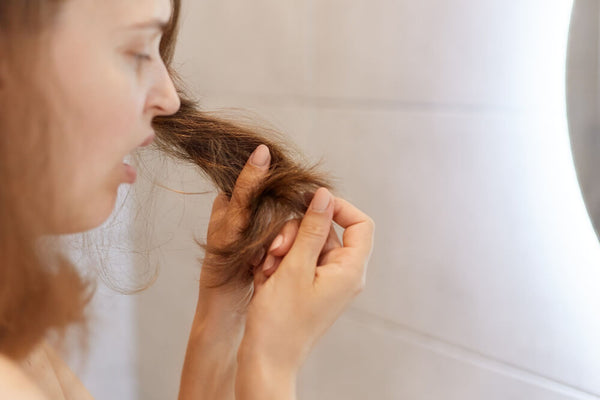Let me tell you about Chloe, a 28-year-old teacher who came to my Atlanta clinic absolutely panicked. She'd found a perfectly round, completely smooth bald spot the size of a quarter while styling her hair for picture day. "It appeared overnight," she kept saying, her hands shaking as she showed me the spot she'd been hiding with creative parting.
If you've had that same heart-sinking moment, I want you to hear this: you're not going crazy, and you're definitely not alone. What you're likely dealing with is alopecia areata. It’s a condition in which your immune system attacks your hair follicles in confusion as if they're foreign entities.
What's REALLY Happening Beneath Your Scalp
Think of your immune system as your body's security team. Normally, it protects you from genuine threats like viruses and bacteria. But with alopecia areata, it's like the security team suddenly decides your hair follicles are dangerous and needs to be shut down.
The good news? This attack usually doesn't permanently destroy the follicle. It's more like putting the hair growth factory on temporary lockdown. The machinery is still there. But it just waits for the all-clear to start production again.
The Signs Most People Miss Until It's Obvious
That first bald patch is often the wake-up call, but there are usually subtle warnings beforehand. Many of my clients recall a tingling or mild itching in the area right before the hair fell out. Some notice increased shedding when they brush or wash their hair—more than the usual few strands.
The most distinctive sign? Those perfectly round, smooth patches where the hair seems to have vanished completely, almost like someone carefully shaved just that spot. The skin isn't scarred or inflamed-looking—it's just... bare.

Why This Isn't "Just Stress" or Bad Luck
While we don't know exactly why the immune system suddenly targets hair follicles, we do know certain factors can trigger the reaction. Genetics play a big role—if autoimmune conditions run in your family, you're more likely to develop alopecia areata. Other triggers can include viral infections, significant emotional stress, or even hormonal changes.
What's important to understand is that this isn't caused by anything you did. You didn't use the wrong shampoo, you didn't stress too much—this is an internal miscommunication that could happen to anyone.

Our Approach: Calming the Storm and Restoring Peace
At Nina Ross Hair Therapy, we don't just treat the bald patches—we work to calm the overactive immune response causing them.
-
We perform an advanced scalp analysis first with the help of trichoscopy to exactly figure out what is going on at the hair follicle level. It gives us confirmation of the diagnosis and info about other conditions that can look similar.
-
Next, we use very specific methods, for example corticosteroid injections to heal the inflammation directly at the site. In certain situations, we can advise the use of topical immunotherapy or the other drugs that can help to reset the immune response.
There is also another innovative treatment called exosome therapy, which not only gets your immune system back on track, but it also encourages the hair follicles to grow again. I've seen remarkable results with this approach especially in cases where traditional treatments have not been fruitful enough.
What to Expect During Treatment
Regrowth of your hair begins with very thin hair which are initially white. Gradually, they will thicken and regain their color within the next several months. The process is very slow and requires a lot of patience as hair growth cycles cannot be accelerated. But seeing those first tiny hairs appear in what was once completely smooth skin makes the journey worthwhile.
Most importantly, we help you manage the emotional rollercoaster. Finding sudden bald patches can be terrifying, and the unpredictable nature of alopecia areata can leave you feeling powerless. We're here to provide not just treatment but also our full support through the process.
Ready to Address the Root Cause?
If you're dealing with unexplained hair loss or sudden bald patches, you may not have enough time left to wait and wonder. Book your Hair Therapy Evaluation with us today for just $99 and let's give your scalp the peace it needs.
The earlier we can intervene with alopecia areata, the better we can manage the condition.















